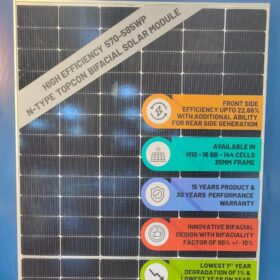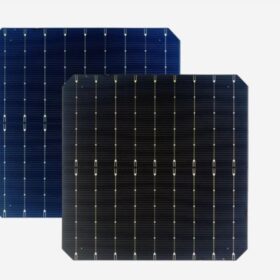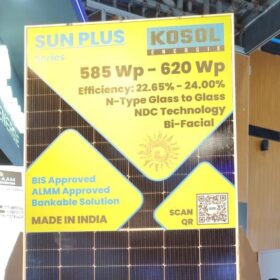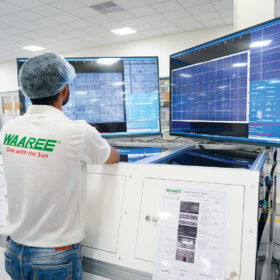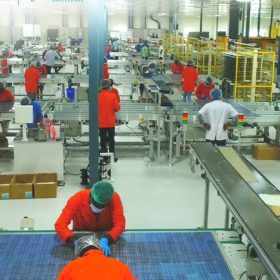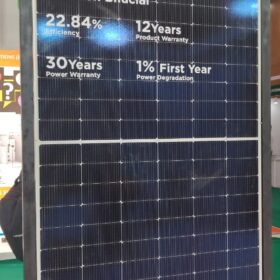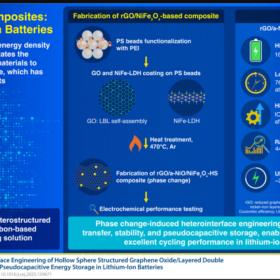Panasonic unveils 585 Wp TOPCon bifacial solar module with 22.66% efficiency
Anchor by Panasonic has unveiled an n-type TOPCon bifacial solar module at RenewX 2025. The glass-to-glass module is available in power range from 570 Wp to 585 Wp, with an efficiency between 22.08% and 22.66%.
Sunora expands into solar inverter market with new launches at RenewX 2025
Gujarat-based solar module manufacturer Sunora has unveiled its grid-connected and hybrid inverters at RenewX 2025.
Japan’s Toyo begins production at 2 GW solar cell plant in Ethiopia
Toyo Co. has started production at its 2 GW solar cell facility in Ethiopia, with plans to deliver more than 80 MW of tunnel oxide passivated contact (TOPCon) cells by the end of April before scaling capacity to 4 GW.
Solex 2 GW TOPCon cell line to come online by early 2027
Gujarat-based Solex Energy has initiated the work on its state-of-the-art 2 GW n-type TOPCon solar cell manufacturing facility, with operations slated to begin in early 2027.
Kosol Energie launches TOPCon bifacial solar module with 24% efficiency
Kosol Energie has launched an n-type TOPCon bifacial solar module with a power output of 620 Wp and efficiency of 24%.
U.S. Commerce Department slaps unexpectedly high tariffs on solar imports
Coalition trade lawyer says the U.S. Department of Commerce’s final tariffs on solar cells and modules from Cambodia, Malaysia, Thailand and Vietnam are among the highest rates he’s ever seen.
Waaree Energies Q4 profit surges 255% YoY
Indian solar manufacturer Waaree Energies has reported total revenue of INR 4,141 crore and net profit of INR 648.49 crore for the fourth quarter of FY 2024-25.
Vikram Solar secures 150 MW module supply order in Maharashtra
Vikram Solar will supply 150 MW of its advanced n-type modules to Maharashtra State Power Generation Co. Ltd (MAHAGENCO) for PV projects under Mukhyamantri Saur Krushi Vahini Yojana.
ReNew showcases 16BB bifacial TOPCon module at RenewX 2025
ReNew has showcased its bifacial n-type TOPCon solar modules with peak power output ranging from 570 W to 590 W and power conversion efficiency of 22.07% to 22.84%, respectively.
South Korean battery breakthrough using hybrid anode material
Researchers at two South Korean universities have collaborated to achieve a breakthrough in lithium-ion battery technology by developing a novel hybrid anode material.
